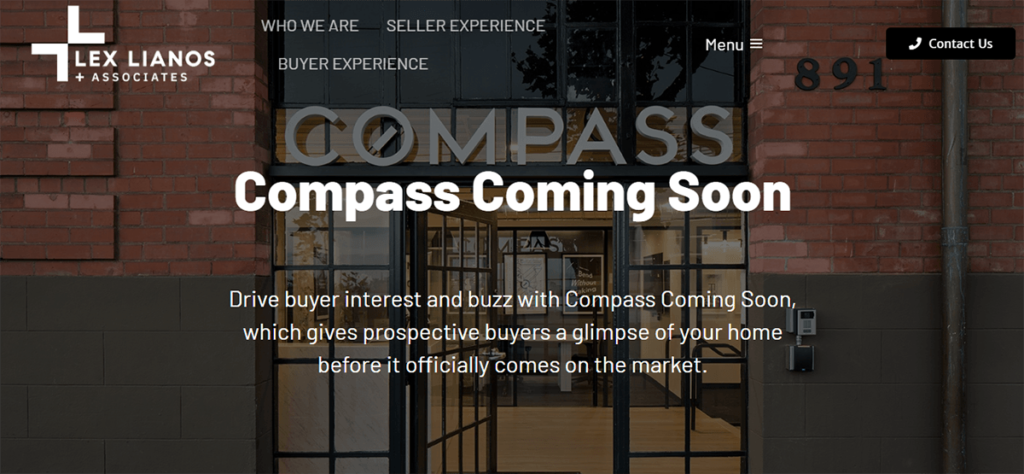What is Compass Thinking? My Thoughts on the Real Estate Brokerage’s Future
I finally got to look at the last chapter of Mike DelPrete’s series on Compass discussing their big, hairy, audacious goal.
Which is great, because I had no clue what they were thinking until now.
And, if Mike is right about Compass, I am even more confused.
Spending Bookoo to Be Realogy?
First, as some background to my skepticism regarding Compass.
I remember watching Refkin speak (in the YouTube, not in person) in 2017, where I was…underwhelmed?
I still remember the point at 6:25 in this YouTube when Reffkin dramatically announced their CRM goal. I still find myself singing along with him: “A C!….R!…Mmmmm!!!”
There are literally dozens if not a hundred CRMs out there already, years ahead of anyone starting now. In fact, that is what my site here at Hooquest is all about – reviewing real estate software like CRMs. I can’t imagine how deflating it would be to have been a Compass agent in that room. You get to go from the brokerage CRM you currently don’t use to a new brokerage CRM you won’t use, but still forced to sit in all the training classes on Wednesdays. Inspiring.
And sure enough, I guess Compass figured that out eventually. Instead of a new CRM, they simply bought one of the existing ones. Good call! But its the kind of thing that makes me wonder how much they really know what they’re doing.
Nor was the rest of his speech any more awe-inducing. The four things Reffkin promised in that speech was a CRM, agent training, a marketing platform, and a glo-in-the-dark yard sign.
What brokerage doesn’t boast about a CRM, agent training, and marketing platform? How is that new? He just promised to be … a brokerage. Hurray, I guess? The yard sign is unique, I suppose.
Since then, they’ve made headlines other than buying Contactually, but also buying and nabbing brokerages and agents, growing an impressive amount by headcount. But the model is still no different than Realogy, is it not?
In fact, Realogy is quite a bit further along than Compass. Realogy is able to cross-market products like title insurance and relocation services. And even then Realogy is swimming in the toilet right now in Wall Street’s esteem.
Why is Compass different?
For some more about Compass, I recommend this recent podcast from Industry Relations in which Rob and Greg mention that Compass seems to be most envious of luxury brands like Sotheby’s. Maybe they have in mind that the exclusive, white glove type treatment of higher-end transactions can scale to median price points? Or perhaps they are just targeting agents in markets and niches above the median price point? I’m not sure, and not sure it matters.
The Compass Unique(?) Selling Proposition
All of this gets me back to Mike DelPrete’s assessment of Compass.
What do they have, or think they are going to have, that is A) achievable and B) different?
Apparently it is exclusive listings.
DelPrete suggests that Compass will make their money forcing consumers to their site and ecosystem with off market listings and coming soon inventory, the same way Redfin and Zillow do with their own listings.
Here is an example of Compass touting exactly that:

But wait – we already have a problem. “The same way Redfin and Zillow do with their own listings“. This isn’t new.
In fact, it’s the same way many agents try to create a competitive advantage for themselves.
Double ending a transaction isn’t new. It’s why agents are so protective of “their listings”. It’s the entire function of BuySide.
But maybe this isn’t about double ending transactions and more about consumers adopting Compass as their go-to real estate platform?
Well, that is still no different than every other portal or website that has Coming Soon listings. That is not a strategy to take on Redfin. Or Zillow. Or Move.com. Heck, I don’t think Compass could take out HAR for traffic based on that alone (Compass has an estimated 1/3 of the traffic HAR gets, and HAR is in a single market).
And, Compass thrives on attracting agents. Agents want to be own business. Agents want a piece of the lead generation. Compass building a giant lead generation machine could potentially be at the expense of their customer: the agent.
It’s the same problems brokerages have always had. What has Compass solved?
But Wait…It Gets Worse
What I find the most offensive about Compass’s strategy is that it rests on making things, in my opinion, worse.
Worse for the consumer, that is.
What home buyer or seller wants the further fragmentation of real estate? As it is, portals like Zillow have incomplete information when brokers decline to syndicate properties. As DelPrete mentions, shoppers are forced to hop between resources to get a complete picture of what is available. Even an agent and their website IDX feed won’t see listings in their own backyard that are listed in an out-of-town MLS.
And we want that to get worse by undermining the transparency of the MLS system with more pocket listings and off-market transactions?
I believe that successful business models of the future will be built on eliminating information asymmetries. Zillow CEO Rich Barton’s career has been an example of businesses built on eliminating information asymmetries.
His first business, Expedia, was built on the information asymmetry in travel between producer and consumer. Agents held the information on flights, hotels, and costs, and were the gatekeepers of that information. Enter Expedia, which leveled that information asymmetry.
Next was Zillow, in which agents and brokers held all the information on which homes were for sale and what they were worth. Zillow showed consumers all of those listings plus a Zestimate. Accurate or not, it was all about getting more information to consumers.
Third, Barton founded Glassdoor, which was all about giving employees more information about employers. That information could be used when shopping jobs or leveraging your own skills in negotiations with current employers, making the field more equal between producer and consumer.
Compass (and every broker who insists that they “own the listing”) is doing the opposite of this. They are trying to make information less accessible, and then capitalize as the gatekeeper.
“Want to see everything that is on the market? You have to come to our site and sign up!”
Maybe they can do that successfully! But for the good of consumers, I hope not. And it’s business as it was done in 1990, not 2020. I certainly wouldn’t be spending hundreds of millions on it.
Conclusion
Note, I am a big fan of Coming Soon listings when done right. When done right, they increase transparency and are good for home sellers and buyers! It is pocket listings that annoy me. I’m not sure which vision Compass has between the two, but either way it is at least one of the following: A) been done, B) better done by others, or C) bad for consumers.
I agree with Rob Hahn that the brokerage models that are going to take over are zero commission brokerages, or the Brokerage-as-a-Service (BaaS) model that I will write about later. Compass is going the opposite direction of these models. They seem to be betting that the industry is not changing as much as we think it is.
If Compass is hoping to stick to higher-end properties, then it’s market share is going to be less, and it has competition there from easier, more transparent business models like Concierge Auctions.
I personally haven’t seen anything come from Compass that makes me think they are going to be anything more than what they are today in ten years, if they are still here at all.
I’m writing that down here so that I can see how foolish I perhaps look in ten years time. What are your thoughts? What am I missing?



> I agree with Rob Hahn that the brokerage models that are going
> to take over are zero commission brokerages…
And you get what you pay for, now and always. Or, to put it another way, there ain’t no free lunch. That’s what you’re missing.
Absolutely. And I think many of the zero commission brokerages charge too little. But I do think agents want to pick and choose the services they are paying for, and the zero commission models allow this.